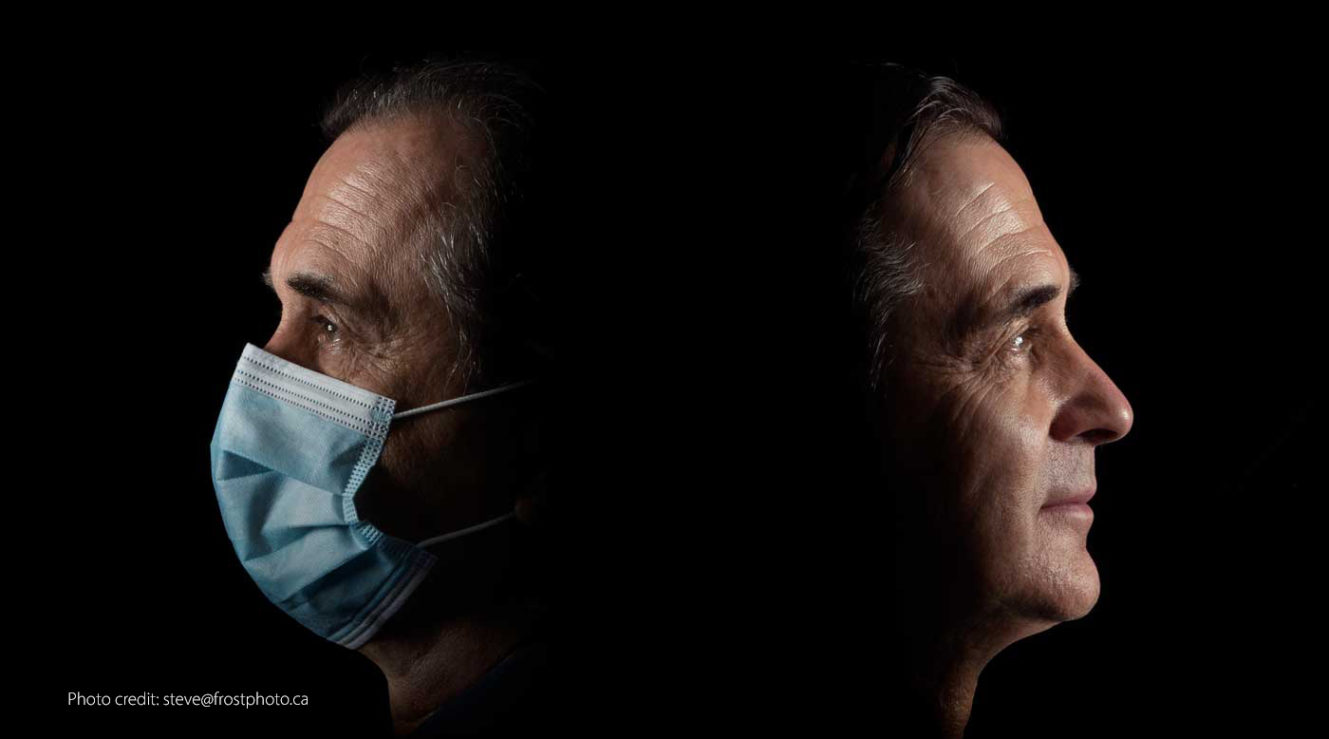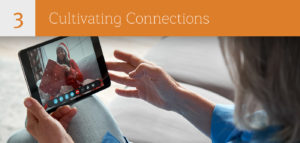How the pandemic has altered brand marketing and strategy.
While the pandemic is not fully extinguished with new variants still emerging, we are taking slow, cautious steps back to normal. With that in mind, we wanted to look back and see what insights and lessons we could take away from the past 16 months not only in our personal lives but in business…
How has the pandemic changed the way customers behave and what does it tell us about their behaviour through the balance of 2021 and beyond? Despite a successful vaccine roll-out, it’s not clear whether pandemics will continue to recur and if so, will the behavioural changes be permanent? To look for answers, we examined the top 2020 Google searches and a number of research studies and found three key themes that should be kept in mind when developing brand strategy for 2022:

In 2019, no one sat back and said, “Hey if there’s a pandemic next year, what are we going to do?” It just happened, and quickly. People had to adjust on the fly, following direction from their employer, health authorities and government officials. Some wound up unemployed, some essential workers had to go in (with not always great results), but a huge majority found themselves scrambling to re-create their life at home: building an in-home workspace, caring for their family, staying healthy and fit, managing school routines and staying connected with family and friends. This was reflected in the top Google searches:
| Search question | Percent change |
|---|---|
|
“Who has (WHAT PRODUCT) and in stock?” |
|
|
Online learning |
|
|
Puppy finder, training, puppy names |
|
|
Full moon, nature, birds, tent camping gear, kayaks, bikes |
|
|
Xbox, Playstation, hobby, knitting |
|
The other lifestyle change that occurred was the use of cars. According to an IBM study , if people did go out and they had the option, they used their car versus public transportation, seeing it as a safety bubble versus a crowded bus. And this could be permanent. 17% of people surveyed said that they intend to use their vehicle more as a result of COVID-19, with approximately 1 in 4 saying they will use it as their exclusive mode of transportation going forward. When funds from the US stimulus bill swoosh into the market, look for a spike in car sales.
While the desire for a more balanced approach to life predates the pandemic, with growing numbers of people working from home, that need became more apparent than ever before. People were working longer hours because their office was ten steps away from the bedroom, not an hour commute so when they did unwind, they needed it to matter as these Google searches show.
|
Fitness apps/equipment |
|
|
Online fitness classes |
|
|
Meditation |
|
A McKinsey & Company study notes that “…at-home sports training (offered by individuals and several sports apparel brands) and the explosion of Peloton (whose sales were up 100% in 2020), will likely continue, reflecting people’s plans after the outbreak to keep themselves fit and healthy”…the question is, will that be at home or in a public gym?
The pandemic has placed constraints on people’s ability to establish and maintain relationships in the real world. So, people have sought alternative ways to connect through FaceTime, Zoom and Teams placing renewed focus on those closest to them, both interpersonally and within their communities as these Google searches Illustrate:
|
|
|
|
|
|
|
|
|
Social media consumption also exploded with Gen Z’ers leading usage +58% during the pandemic according to research by GlobalWebIndex. Consumers are filming themselves and uploading to social networks like Instagram and TikTok in record numbers. Brands now have a unique opportunity to position themselves with younger audiences with fewer distractions through video content that emphasizes authenticity over high production values.
It also seems that 3-6% of online market share is being driven by seniors (70+) who by necessity, had to become comfortable with digital, according to McKinsey & Co. Zoom calls, online bridge, fitness classes, buying food all would have been unimaginable before Covid, but when you’re shut in, it becomes a necessity.
We believe these insights will endure and shape 2021 & 2022 and that understanding them will provide brand marketers with opportunities to better meet consumers’ needs.
We believe longevity matters for four reasons:

Digital
If it wasn’t obvious before, COVID has made it clear that marketers who don’t use data-driven thinking in all steps of their marketing are on a quick road to failure. Whether you are B2C or B2B company, your customers are finding and engaging with you online way before any in-person contact. So, make sure that experience is as positive and frictionless as possible.

Agility
Markets are changing fast. Planning and building systems that allow you to respond to consumers questions, comments or complaints is more important that ever. Quick pivots are also critical when one market dries up and another one opens. Look at how car insurance marketers jumped on lower auto usage to turn a long-standing negative (escalating insurance rates) into a positive by offering lower prices for coverage.

Confidence
We are still a way from ‘normal’. Marketers should find ways to reassure and remind people that their businesses are getting the basics right (product availability and safety). But also help people feel like they’re re-establishing some semblance of control over their lives and that they’re thriving rather than simply surviving.

Market with purpose
Social issues have never been more important and COVID may have helped bring a spotlight on some of them: Racial divides, women’s rights, mental health, different views on health and safety. Now it’s not an option, and consumers don’t expect…they demand their brands actively contribute toward the betterment of society as a whole.
Download Content 
If you would like to discuss these ideas further, reach out to Ted Nation, President Yield Branding. tnation@yieldbranding.com



























